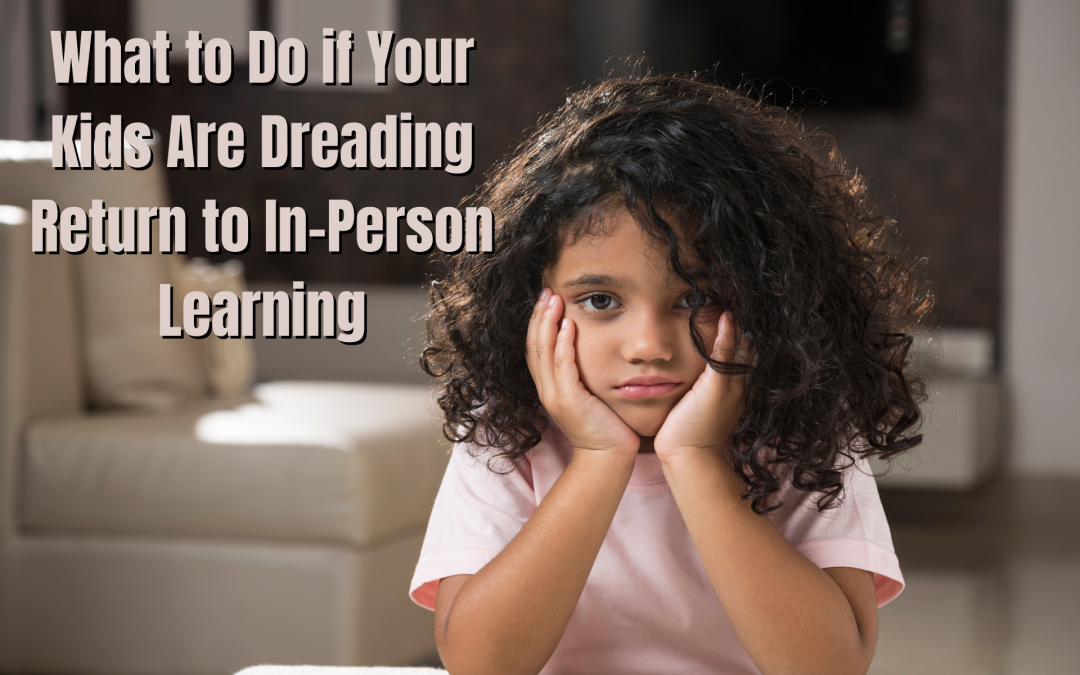Finally, you hear the good news you’ve been waiting for: in-person learning is returning in September 2021 for students. A return to normalcy at last! But what if your children are less enthused? And by less enthused, they are dreading every second that gets them closer to September? What do you do? Read on to find some helpful tips and tricks to get to the root of the problem with your child’s learning.
Ask Questions
First and foremost, it’s critical to understand why your child isn’t looking forward to a return to school buildings. Depending on their age, this may be the first time they are going to be experiencing leaving the house and learning. If this is the case, it is most likely nervousness and not knowing what to expect. These feelings are easy enough to explain to your child and to help them prepare for their first day of school properly. If your child has been to school previously, however, and had online learning this past year, the situation may be completely different. Take your time in getting answers to your questions, as you don’t want to push your child too much. But simply starting with the W’s: Who, What, Where, When, etc., might be enough to have them open up to you about why they don’t want to return. Are they being bullied at school? Do they prefer online learning to in-person? Are they intimidated by anything or anyone at school? Getting answers to these questions can help you decide how to proceed moving forward towards the upcoming school year.
Get Solutions
If your child is uncomfortable in their school setting, it’s important to talk to the principal and other school staff, if need be, in order to find solutions to these issues. Hopefully with a resolution in place with the help of the school, your child can feel at ease heading into the building come September. If it’s between children, talking to the other parents can help form a relationship, and can make your children’s interactions more positive. You can even have a few get-togethers to hopefully settle the situation and potentially have your children form a friendship before the school year starts, making the transition easier for all parties.
If the root of your child’s problem lies more in the learning techniques rather than the social aspects, it may be a talk with the school as well. Whether your child prefers the use of digital media to learn easier, or feels like the subjects are too easy or too hard to learn in school, these can oftentimes be mediated through talking with the school’s principal, guidance counselor, or some of your child’s teachers in order to find solutions that work for everybody. Your child may be more of an introvert and thus simply prefers at-home learning as the social pressures are less; they’re not getting bullied or having any issues with other students, they just simply feel more at ease when they’re at home. If this is the case, having a long discussion with your child about the importance of social interactions and making friends who understand them can help. It may seem to them that they’re all alone, but reassure them that there are always potential friends out there, waiting to be discovered.
The road ahead may be a little troublesome, but being open and honest with your child and getting it reciprocated back to you can help in putting their mind at ease. School can be difficult for some, and you want to make sure they’re easing into the academic year right.
Katie Kyzivat
